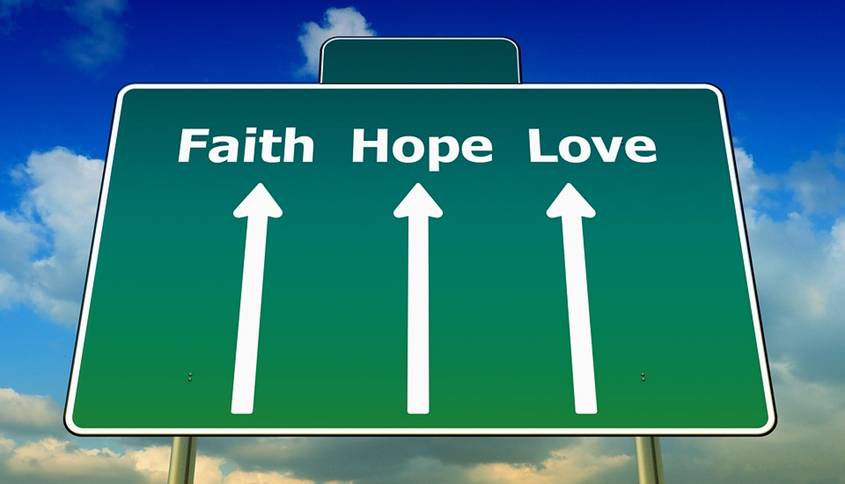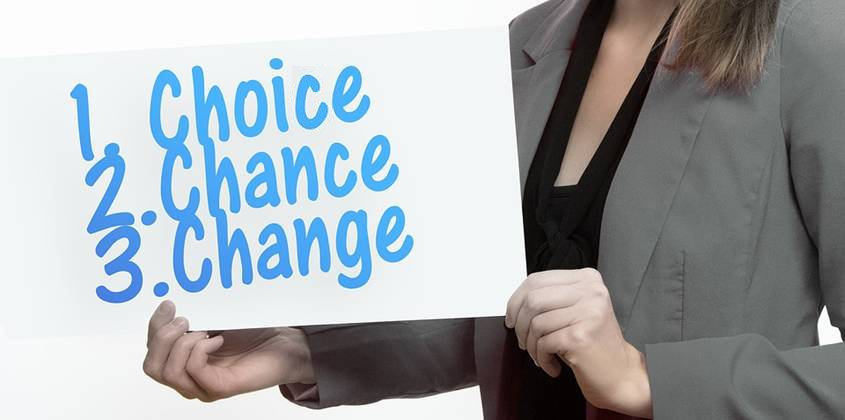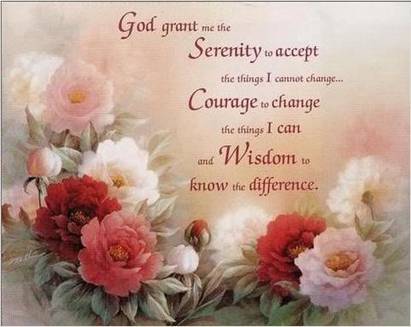
In the last two posts about the expectations paradox, I explained how expectations from others and ourselves can cause us lots of pain and why respect and acceptance are the keys to overcoming them. It is much better to be prepared for the future than to try to control a specific outcome. Today, I will describe how to develop respect and acceptance with mindfulness.
My expectations are not in any future event. I would rather just be prepared for whatever might take place
Dan Webster
Mindfulness is a state of reflection with no judgment. This state is similar to meditation. We observe and do not let the ego interfere with our observation and tempt us to label and judge what we experience. In a mindfulness state, we do not give a rating to the event, thought or feeling. We only name it. In a higher state of mindfulness, even naming it is not necessary. We just notice.
I remember the first time I meditated. Gal and I were in California at a meditation course. Every week, we learned a different kind of meditation. We did walking, eating, light, mantra and visualizing meditations and we were very confused. Millions of thoughts ran through our minds and we had no control over them. When we got home, we went to sleep and felt overwhelmed.
When I was younger, I was more self-conscious about living up to or surpassing the expectations of others. But as you get older, you start to build confidence
Ivanka Trump
About five years later, we did a transcendental meditation course. Our teacher, who was very experienced, explained to us what happens in our mind while we meditate.
When I started, I realized how judgmental I was. I had a name for every thought. I tried to control the thought and lock it in a definition, and I had a rating for it – good, bad, happy, guilty, etc.
The teacher talked about letting go of our judgment and not fighting it. It was the opposite of what I naturally did, but when I got the hang of it, it gave me a huge sense of freedom.
Our children also took part in this course and both of them meditated afterwards. They became focused, content and very clear on what they wanted and how to relate to others. Some things I am busy teaching my older clients, my own kids understood when they were very young. The wisdom that comes with age, about living up to your own expectations and not being busy with pleasing others that took me so many years to learn, were part of my children’s life at the age of four and ten.
I don’t have to do anything for anyone else’s benefit anymore. I just want to exceed my own expectations
Dane Cook

The first thing that happens when you start practicing mindfulness is overwhelm as you change the focus from justifying your thoughts – your anger, your disappointment, your right to think and feel and the right to expect the world to fulfill your expectations – into doubt that these rights really exist. It is confusing.
Many people I know feel so unsettled by it that they quickly give up. I have heard many people say, “I can’t meditate. I’ve tried, but it didn’t work for me”. There is a false expectation that meditation will bring you immediate bliss. If this is what you expect, no wonder you cannot meditate.
We can each define ambition and progress for ourselves. The goal is to work toward a world where expectations are not set by the stereotypes that hold us back, but by our personal passion, talents and interests
Sheryl Sandberg
Meditation is the mindful act of being quiet and thinking about thinking without judgment. Anyone can be quiet for 5 or 10 minutes, but not everyone can stop self-judgment. It is work in progress.
Even advanced Buddhist monks, who have been practicing it for years in a cave, consider it work in progress. Life will throw at us opportunities to examine our judgment and realize that the real pain comes from our own expectations and not from what others do (or do not do).
You do not have to have your eyes closed. You do not have to have a blank mind. And you do not have to lose track of time. You only need to be there in the quiet of your mind and let the thoughts come and go without judgment. Over time, with practice, we let go of our expectations and embrace life as it is.
It’s a good place when all you have is hope and not expectations
Danny Boyle
Love, hope and faith are three tools to overcome our misguided desire for certainty. Life is never certain and any attempt to control others or ourselves, in hope that this will bring us certainty, will only increase our sense of uncertainty.
Achieving something and realizing that we deluded ourselves about what we would get from it brings great awareness. When Gal and I were students, we worked hard and expected to improve our finances until we felt “wealthy”. A year later, we bought an apartment that was three times larger, our income was very good, we owned a car that no one our age had, and based on the “norm”, we were a wealthy couple, but we did not feel that. We were grateful and appreciated having money, but it did not feel any different.
Once we had exceeded our own expectations, we realized they were false. We had been living by social expectations without questioning whether we should or should not aim to fulfill them. Only when we were wealthy, we understood that a sense of wealth has nothing to do with how much money you have. It is based on your expectations of what this money will make you feel.
No expectations. Time and love are the most valuable possession you can share
Suze Orman
The confusion between hope and expectations

It is a good idea not to confuse hope with expectations. In the book The Awakened Heart, Dr Gerald May defines expectations as “rigid clinging to unreal belief” and says that this clinging is based on experiences and is very hard to let go. Hope, on the other hand, is a wish for the future. Hope is flexible and adjusts to reality, limited only by our imagination. Expectations fight for certainty and hope accept uncertainty.
We can have false expectations, but never false hopes.
Living with very limited expectations is a much more immediate way of living. You really do just make the best of everything you have. I guess kids have that ability; they wait in joyful anticipation of something rather than that sense of entitlement
Natascha McElhone
Flow is a healthy state, when we have hope, goals and acceptance combined with a sense of contentment. Acceptance is the antidote for the pain of expectations. Like meditation and mindfulness, acceptance is observation without judgment.
For example, “I expected myself to finish this report on time and I didn’t. I accept that I did the best I could, without judgment or hard feelings. I learn from this experience and add it to my pool of experiences, so that hopefully, I will be more prepared and plan my time better next time”.
Or “I expected my husband to prepare dinner and he didn’t. I accept that he did the best he could, without judgment or hard feelings. I learn from this experience and add it to my pool of experiences, so that hopefully, we’ll eat dinner earlier next time”.
As long as I focus on what I feel and don’t worry about where I’m going, it works out. Having no expectations but being open to everything is what makes wonderful things happen. If I don’t worry, there’s no obstruction and life flows easily. It sounds impractical, but ‘Expect nothing; be open to everything’ is really all it is
Marketa Irglova
Flow like the river

Mindfulness is a great way to reach a state of flow when we live in the moment. When we flow, we are at our best in terms of health, creativity, relationships and happiness. Flow does not mean we do not work hard for it, but that we enjoy what we are doing and when things do not happen the way we expect them to, we use flexibility to keep moving forward.
Flow like a river. When a river bumps into rocks, it goes around them. It does not stand there and complain that the rocks are on its way and it did not expect them to be there. If you want to reach faraway places, you need to flow like the river, with acceptance and flexibility. The rock is there, because of a life journey that brought it there. Expressing your unmet expectations will not change its life journey and make it disappear. If you are wise, you might be able to use the rock to your advantage and flow even faster.
I really try to wake up with my music the same as I do with my life, and that is with no expectations. I just feel what I feel that day and follow it
Robin Thicke
Mindfulness exercise: list your expectations
The first mindfulness exercise I suggest is to take stock of your expectations. Some of my clients who do this activity with me worry when I ask them to send me 100 expectations. All of them think they do not have that many expectations and I think they are just unaware of them, because they have thousands of them. We all do.
We attach expectations to everything in life that makes us happy or unhappy. The happy ones are fulfilled and the unhappy ones are unfulfilled, but that is the only difference.

Here is an example of something I expect, which is essential to my existence: When I drive, I expect all the other drivers to stay in their lanes, follow the traffic signs, stop for people crossing and obey a long list of driving rules. Every day I get home safely, life meets my expectations and I am happy.
When someone does not do what I expect on the road, I need to respond and this throws me off balance. I stop suddenly and have to change my behavior so that I can stay safe. If I scream my expectations, if I swear at the other driver, if I remind him or her of the rules, it will not change what happened. It will only make the rest of my life a little unhappier.
Every time someone on the road does not meet my expectations (which are unrealistic, because we all make mistakes, we all feel distracted sometimes and we are all emotional sometimes), I am unhappy. It is better to treat it like meditation, observe the unhappiness, let it go without judgment and focus on what I can do now to change my own state.
Should I lash out at the other person or drive a bit more slowly to give myself more room and a longer reaction time? Please pay attention to the word “I”, because it is a key ingredient in expectations.

Mindfulness exercise: be responsible
The second activity is to take the list you came up with and extend it to 100 unmet expectations. This list is easy to do. All you have to do is find things you are unhappy about in life and there you have it!
Once you discover these expectations, divide them into Responsible and Irresponsible lists. Responsible expectations are within your power to change. The expectations are from yourself. Irresponsible expectations are from other people or from sources that are external to you.
By dividing the expectations, you are developing the wisdom to know the difference between what you can change and what you cannot.
The irresponsible expectations make you feel helpless and upset. It is no one else’s fault. It is yours. You are the one causing yourself pain. So label them as “false expectations” and get rid of them.
The expectations from yourself are the only expectations you have the power meet, so examine your reaction not meeting each one of them. If you accept that this “reality” is what it is, without judgment, and you have thoughts of acceptance and forgiveness, like “I did my best and I am OK. I can’t change the past, but I can change the future. I can try more, do things differently, change goals and change my actions, because life is work in progress”, then the expectations are good for you. Keep them.
If you do not accept this “reality” and criticize yourself, blame yourself, feel shame, regret, anger and depression, and have thoughts like “I’m a looser. I will never be able to do this. What a stupid thing to do. What will other say about me? Why do I deserve this? It is my fault. This is my punishment. I have no chance”, then the expectations are not good for you. Change them!

Try these mindfulness exercises and you will see how within a week, your attitude towards life, towards yourself and towards others changes dramatically.
Expectations from ourselves, in the form of goals and desires, are good motivation tools when we know we can control them, we are flexible about them and we do not beat ourselves up for not achieving them. When expectations cause us pain, they are debilitating in any relationship, with ourselves or with others.
Only we can stop the pain with responsibility and mindfulness. We need courage to take responsibility for our own pain and understand that our expectations cause it and not anything in the external world.
So be mindful, get rid of your false expectations and set yourself free!
Be Happy!
Ronit
This post is part of the series The Expectations Paradox:
- The Expectations Paradox: Danger Ahead
- The Expectations Paradox: Self-inflicted Pain
- The Expectations Paradox: Mindfulness is the Cure











